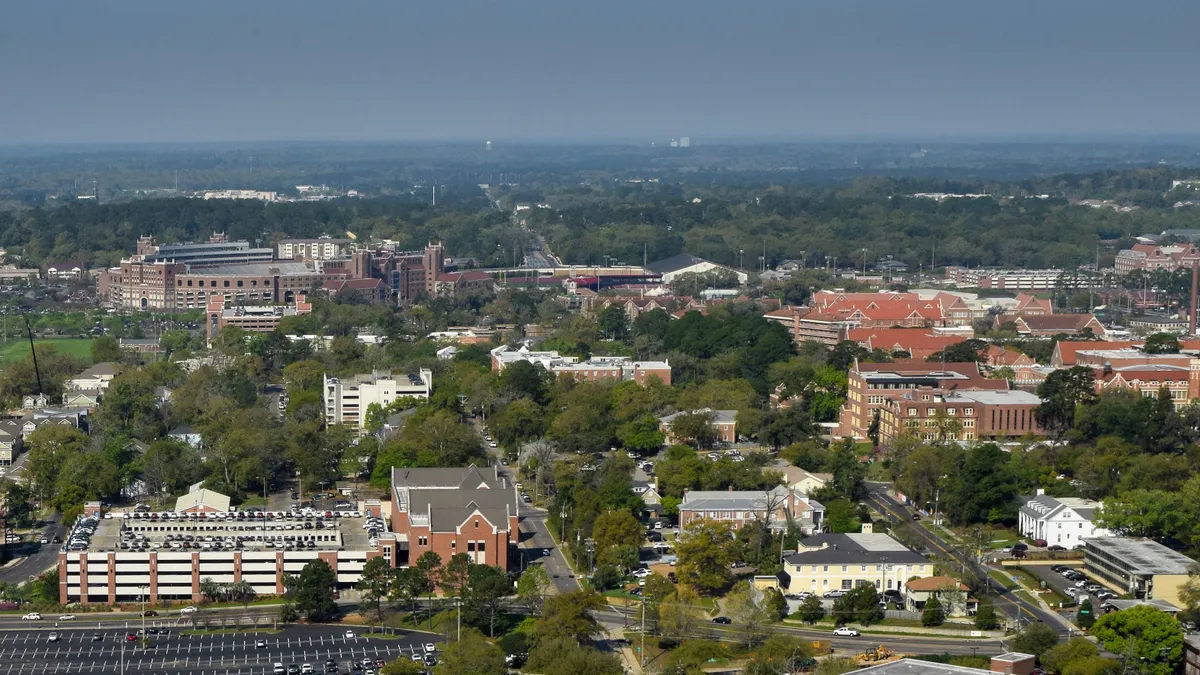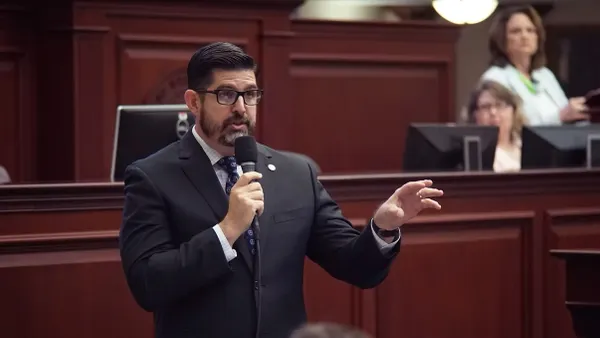Dive Brief:
- State University System of Florida institutions collectively plan to terminate 18 academic programs and suspend another eight after reviewing how many degrees they award, Emily Sikes, the public system’s vice chancellor for academic and student affairs, said at a meeting last week with lawmakers.
- In the review, SUSF officials identified 214 programs systemwide that they say are underperforming based on how many graduates they’ve produced in the past three years. System universities plan to continue at least 150 of those programs while consolidating another 30.
- The large majority of underperforming programs, 68%, are in the liberal arts, education and science fields, including ethnic and cultural studies, foreign languages, philosophy and religious studies, and physical and social sciences programs.
Dive Insight:
As required by SUSF regulations, the 12-university system has conducted productivity reviews of degree programs every three to four years for roughly the past decade and a half, Sikes said.
Over that time, the system’s institutions have axed over 100 programs based on those reviews, she said. Most of those programs were cut in 2011, when the first such review yielded 492 programs deemed to be underperforming, leading university officials to terminate 73 of them.
In this year’s review, SUSF officials looked for bachelor’s programs graduating fewer than 30 students over the last three years, master’s programs awarding fewer than 20 degrees and doctorate programs with fewer than 10 graduates during that period.
Master’s programs made up 55% of the 214 that fell below graduate thresholds. But, Sikes added, there is a reason for that: SUSF universities often award master’s degrees to students who don’t complete doctoral programs so they have something to show for their time and effort.
Another 31% of the underperforming programs were bachelor’s, and 14% were doctorate.
For the eight programs set for suspension, the universities will stop enrolling students and “take a hard look” at either updating the curriculum to improve the program or deciding to wind it down, Sikes said.
While Florida’s university system has reviewed its program productivity for years, other states have begun mandating their public colleges trim their offerings along similar lines.
This summer, the Indiana Commission for Higher Education announced that six of the state's public colleges planned to eliminate 75 programs, suspend another 101 and consolidate 232 others in response to a new state law.
In April, Indiana lawmakers introduced graduation quotas for public college programs, requiring a three-year average of at least 15 graduates for bachelor’s programs, 10 for associate degrees, seven for master’s programs and three for doctoral degrees. The quotas were part of a controversial last-minute bonanza of new higher ed policies that lawmakers baked into a budget bill this year.
The speed of the program cuts led to confusion and chaos for some Indiana faculty this summer. “Even tenured faculty are wondering, am I going to have a job in two months?” one faculty governance leader in Indiana told local media in June.
Ohio enacted a similar law this spring, called SB 1, which has led to dozens of proposed program cuts at the state’s public universities.















